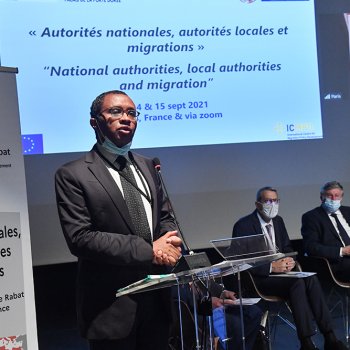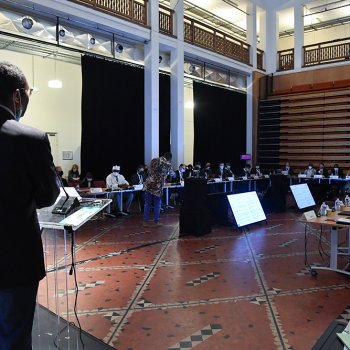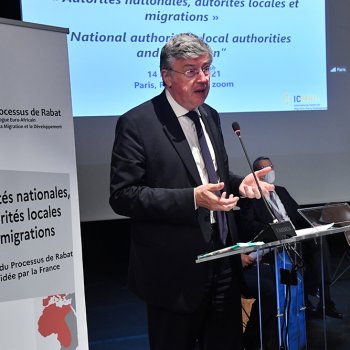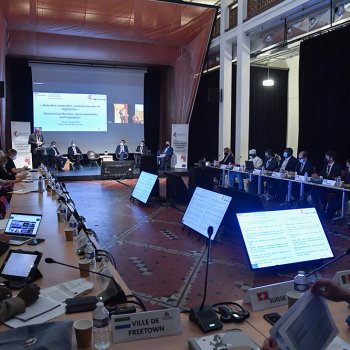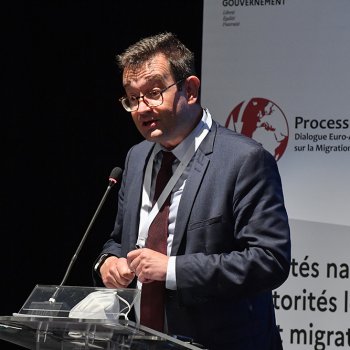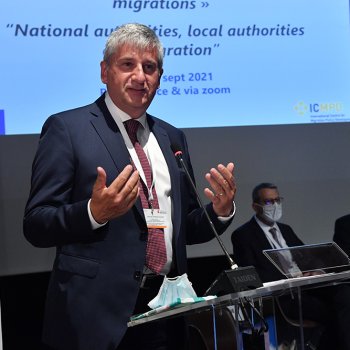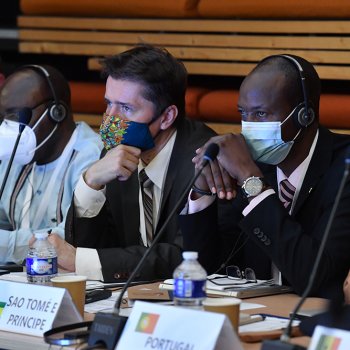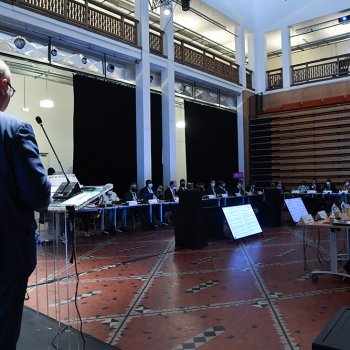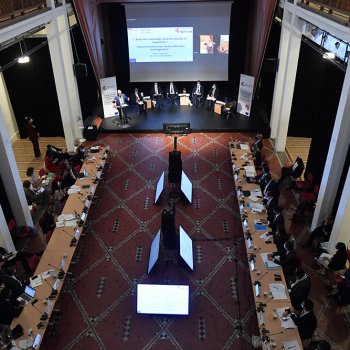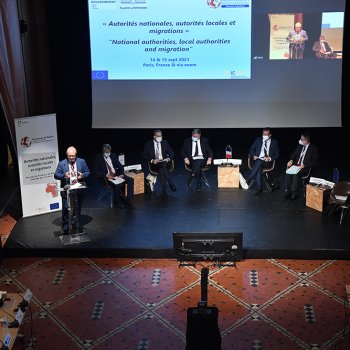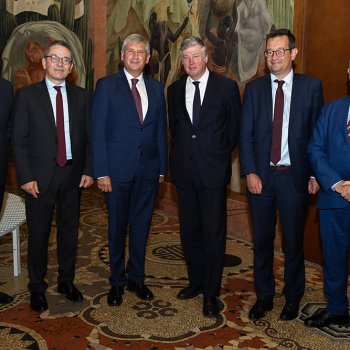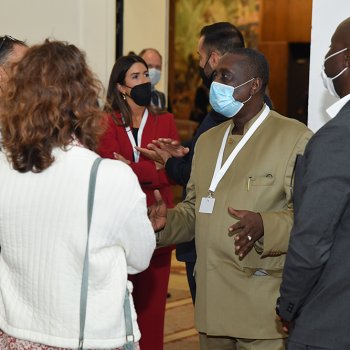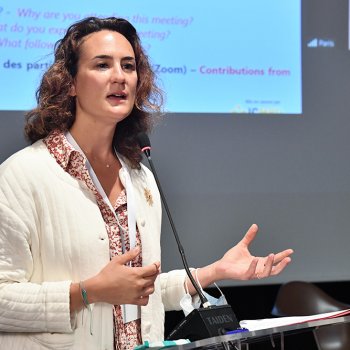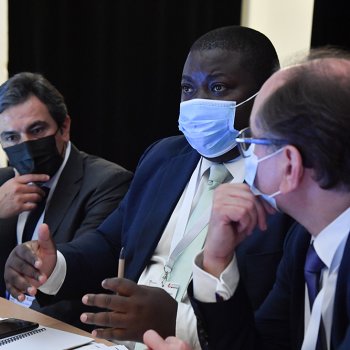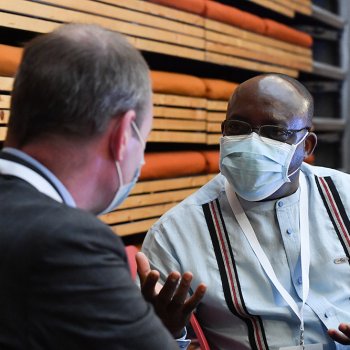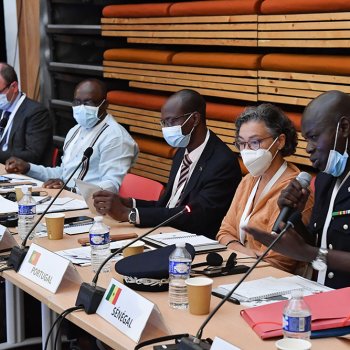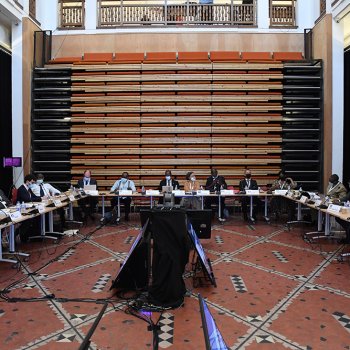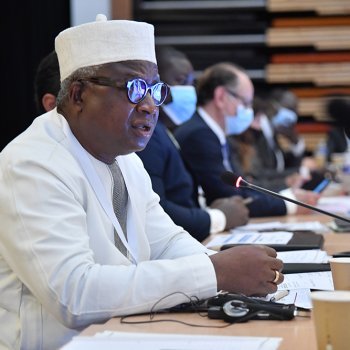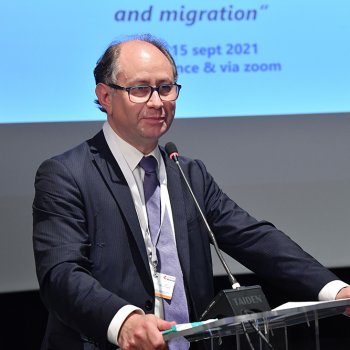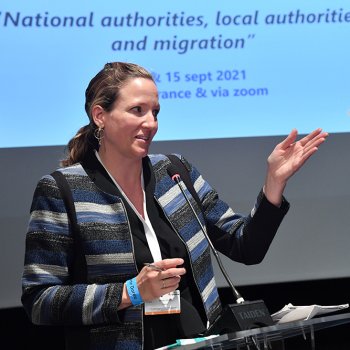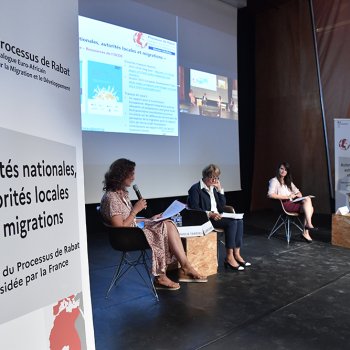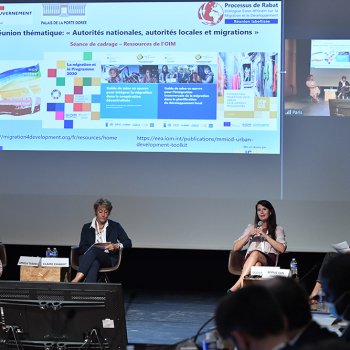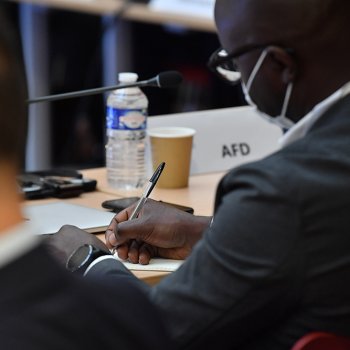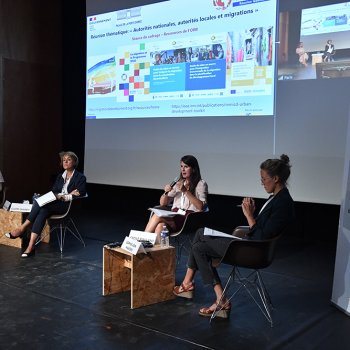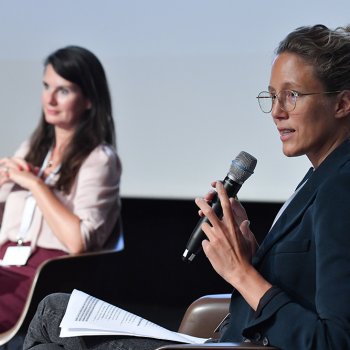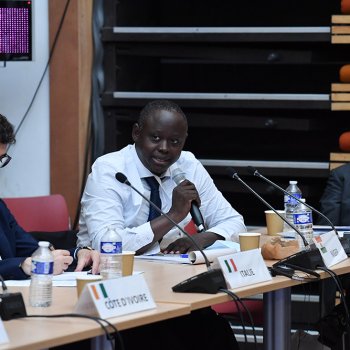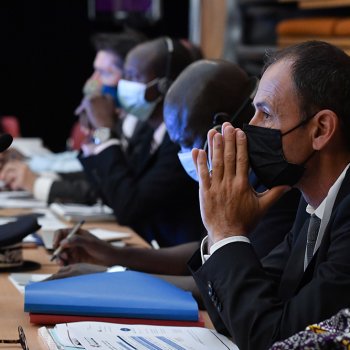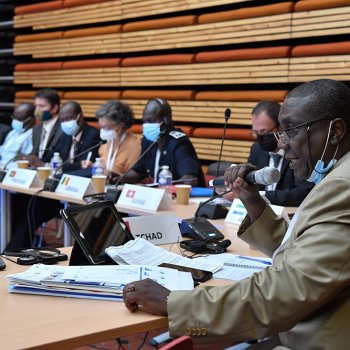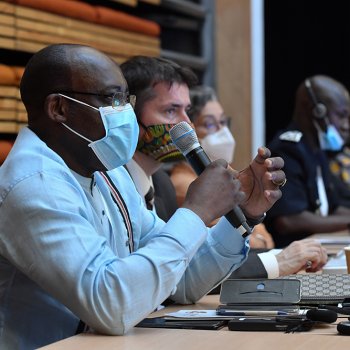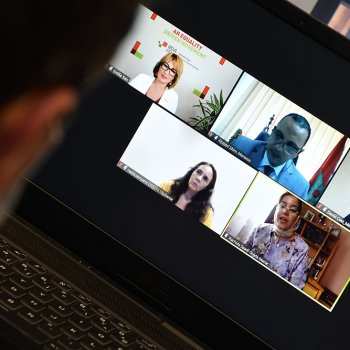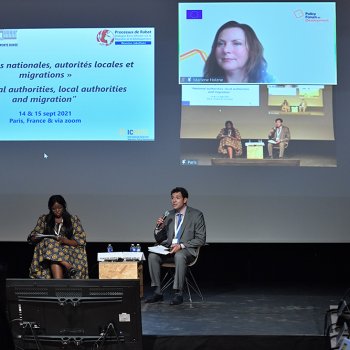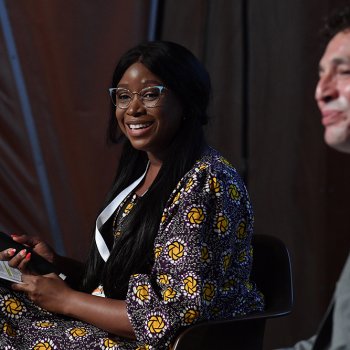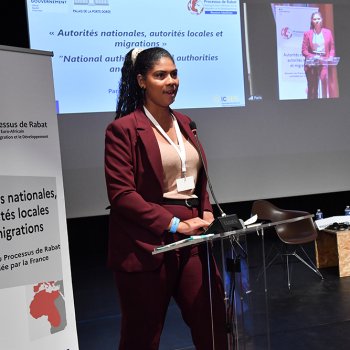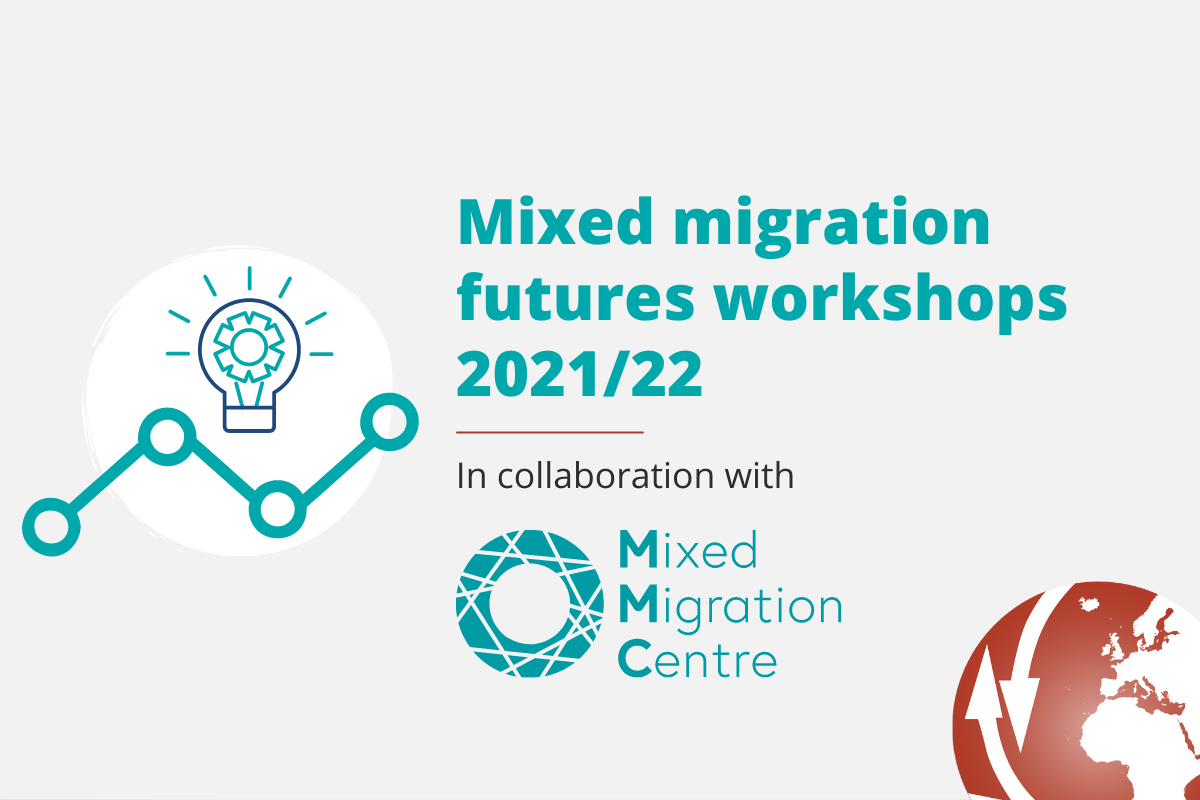What challenges do local and national authorities encounter when coordinating on migration? Do any good practices exist, which could inspire others?
At the Rabat Process-labelled meeting “National authorities, local authorities and migration”, the Dialogue partners discussed for the first time ever the role of local authorities and cities, alongside national authorities, in migration governance. This meeting was held on 14th and 15th September 2021 in Paris and was driven by the French Ministry for Europe and Foreign Affairs and the French Ministry of the Interior, and with the support of the Rabat Process Secretariat.
The meeting opened a dialogue between local and national authorities and attracted a diverse public of over 80 participants, including not only the Rabat Process partner countries and organisations, but also researchers and representatives from international organisations and civil society. It was also the first meeting with a hybrid format, which allowed participants to join the discussions either in person or via video conference.
The labelling system allows Dialogue partner countries to take the initiative in implementing activities compliant with the Marrakesh Action Plan. In doing so, they contribute to achieving the objectives of the action plan whilst meeting their own strategic priorities.
In recognition of the important role that local authorities and cities play in responding to the needs of migrants, and the inclusive and multi-stakeholder approach endorsed in the Marrakesh Action Plan, the overarching objective of the meeting was to discuss different ways in which local and national authorities can work together to better coordinate on migration. This includes through shared governance, and as such, the meeting explored several models of multilevel governance in the field of migration, and good practices on coordination.
“An inclusive and multi-stakeholder approach":
"[…] the partners will seek to involve all the actors under the coordination of the national authorities (regional organisations, local authorities, traditional and customary authorities, representatives of civil society and migrant and refugee communities, social partners, the private sector, the media and academia) as well as relevant International Organisations, to ensure coordinated and orderly management of all dimensions of the migratory phenomenon”.
An interactive approach to promote discussions
Held in the symbolic National Museum of Immigration History, the meeting adopted an interactive approach. It started with an icebreaker activity, which asked participants to reflect on why they had come and what their expectations were. Furthermore, a role-play activity on socioeconomic inclusion of new arrivals was organised, to promote discussion among the participants. It allowed them to observe the complementarity between the different levels of authority and the key role of subnational governments in the social and economic integration of migrants.
Main conclusions, challenges and opportunities: involving the local level in the Rabat Process
The inclusion of local/subnational governments in global governance on migration issues has accelerated over the past decade. In addition, at the regional, continental and international levels, many formal and informal networks, coalitions and associations exist, bringing local authorities and cities together to exchange knowledge, encourage decentralised cooperation and explore innovative local solutions. Regarding the socio-economic inclusion of migrants and refugees, which was another focus of the meeting, participants emphasised the need for close coordination between local governments, the central State and civil society.
The outcome document of the meeting gives an overview of the main conclusions, as well as the challenges and opportunities related to coordination between local and national authorities:
- Outcome document: "National authorities, local authorities and migration" (EN)
- Document final: « Autorités nationales, autorités locales et migrations » (FR)
One of the expected results was that discussions and debates at the meeting feed into the Rabat Process partners’ ongoing reflection on the future involvement of cities and local authorities in the Dialogue and the Marrakesh Action Plan. In coordination with the Steering Committee, France developed a short note proposing different ways in which local stakeholders might be included in the Dialogue. This document will be presented during the forthcoming Senior Officials’ Meeting in Malabo for decision.
Photos of the meeting “National authorities, local authorities and migration”
14th-15th September 2021, Photos © Xavier Granet


